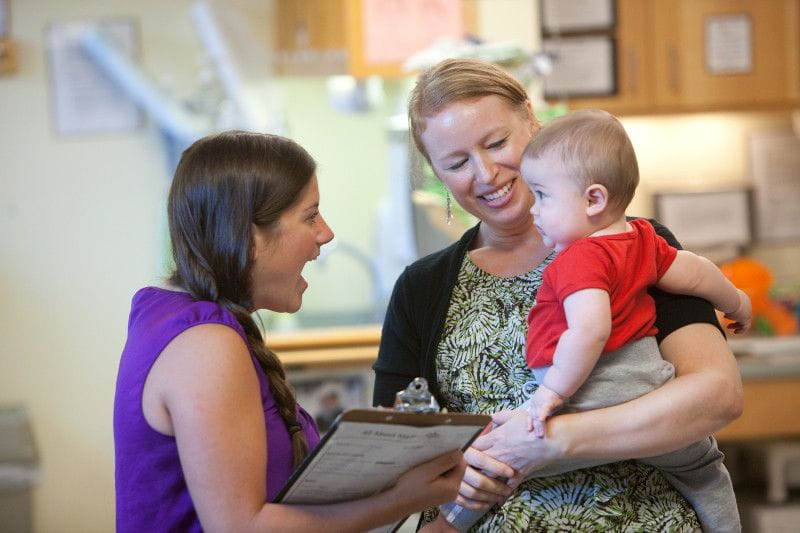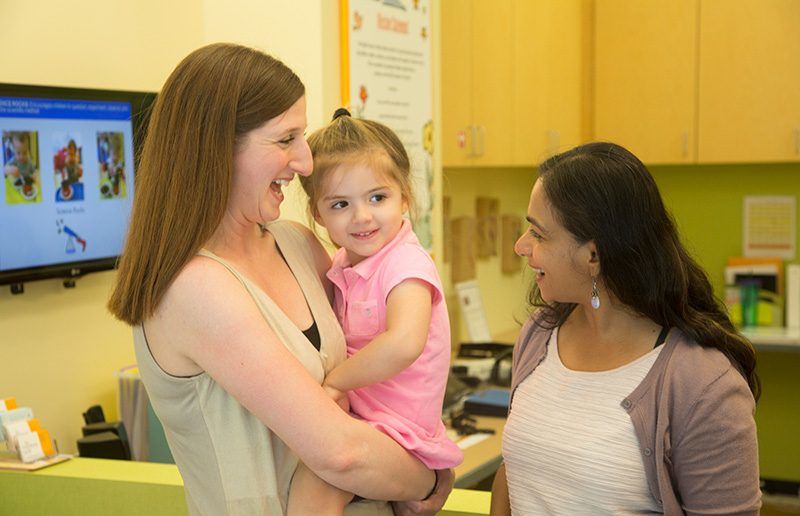The former is the essential needed to do the job. The latter is the essential needed for school success. The two conflict when early education programs (which often operate on less than work-friendly hours) require parents to interrupt workdays to ferry children between school and regular care. And it sets up a face-off between schedule and education that schedule often wins. As one mom put it recently, "The afternoon community preschool in my town was where everybody went. But there's no way I could have done that schedule and still gone to work."
The Value of Early Education
Yet there's wide agreement that such decisions have long-range consequences. One study of 4,000 children in Tulsa showed distinct advantages for children who went to preschool. "As eighth graders, they were less likely to be held back than their classmates who did not attend preschool," read a New York Times article on the study.Another study showed similar effects for toddlers, with a two-year-old's vocabulary predictive of kindergarten - and so long-term school - success. "School readiness at the start of kindergarten can affect a child's ability to read by third grade," reads a Slate article about the importance of education for these children. "Kids who read by third grade are more likely to graduate from high school."
The question then is how to provide both without compromising the workday. And the answer is to ensure that for working parents, child care and early education are one in the same. The benefits are far from just for families.
Future workforce
The lifetime advantages of preschool-educated children are so great, wrote the Tulsa study, that every dollar invested in quality preschool could generate a two-dollar return.
Current-Day Productivity
Combining child care and early education relieves parents of the midday shuffle between locations, giving working parents the dependable schedules they - and their employers - need. That means an antidote to some of the estimated $3 billion lost annually to child care issues.
Employee Appeal
The strong business case for child care/early education becomes even stronger when you hear from parents themselves. "One of the reasons I took this job," a Home Depot employee told Atlanta NPR affiliate WABE, "really was having this on-site day care."
Stickiness
Programs that span education for infant to preschool retain parents who no longer have to reinvent the wheel every time a child reaches a new developmental stage.
Setting Up a Win-Win
Given the upside, it's no surprise that employers are stepping up. "Having on-site day care at work is a big benefit," declared WABE in their article entitled, Companies Realize Benefits of Pitching in For Child Care. "Helping employees with child care," wrote the author pointedly, "is a win-win."Collectively, the evidence makes a strong case for child care that does double duty as early education. As one mother told Slate, "I don't want them to just be watched. I want them to be smart, to work their brains."
So parents want more for their children than child care alone; society and the business world need it.
A program that does both alleviates the problem of parents who have to choose.





